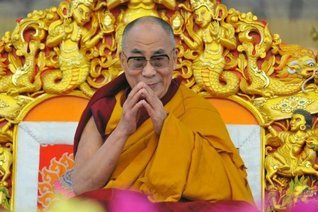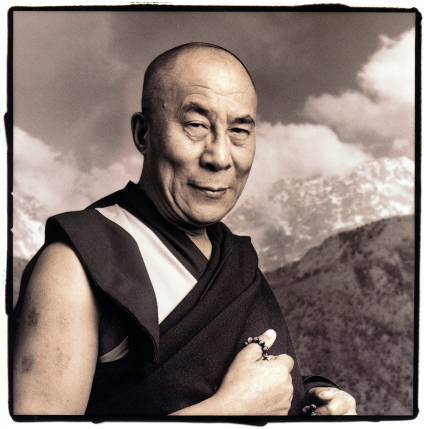
when one reflects on these things then passages from the Bodhicaryavatara and other bodhisattva texts make definite sense. For example, Santideva says in the Bodhicaryavatara, “Why should I seek nirvana?” Similarly Bhavaviveka states in his text called the Heart of Madhyamika; “Through insight into the unsatisfactory nature of existence I will be freed from attachment to existence. However through the power of compassion I distance myself from seeking nirvana”.
- His Holiness the Dalai Lama A note from DharmaScribe: DharmaScribe receives about 30 cents from each download which are then used to continue our effort to spread the messages of Buddha. We started this initiative with strong motivation and belief that it will be of tremendous benefit to countless people seeking Buddhist wisdom. To reach the maximum potential and benefit of this initiative and support our effort, we ask for your support. However small or big, your support will make a huge difference. There are few ways you could help us.
Author

Jetsun Jamphel Ngawang Lobsang Yeshe Tenzin Gyatso (born Lhamo Döndrub), the 14th Dalai Lama, is a practicing member of the Gelug School of Tibetan Buddhism and is influential as a Nobel Peace Prize laureate, the world's most famous Buddhist monk, and the leader of the exiled Tibetan government in India. Tenzin Gyatso was the fifth of sixteen children born to a farming family. He was proclaimed the tulku (an Enlightened lama who has consciously decided to take rebirth) of the 13th Dalai Lama at the age of two. On 17 November 1950, at the age of 15, he was enthroned as Tibet's ruler. Thus he became Tibet's most important political ruler just one month after the People's Republic of China's invasion of Tibet on 7 October 1950. In 1954, he went to Beijing to attempt peace talks with Mao Zedong and other leaders of the PRC. These talks ultimately failed. After a failed uprising and the collapse of the Tibetan resistance movement in 1959, the Dalai Lama left for India, where he was active in establishing the Central Tibetan Administration (the Tibetan Government in Exile) and in seeking to preserve Tibetan culture and education among the thousands of refugees who accompanied him. Tenzin Gyatso is a charismatic figure and noted public speaker. This Dalai Lama is the first to travel to the West. There, he has helped to spread Buddhism and to promote the concepts of universal responsibility, secular ethics, and religious harmony. He was awarded the Nobel Peace Prize in 1989, honorary Canadian citizenship in 2006, and the United States Congressional Gold Medal on 17 October 2007.